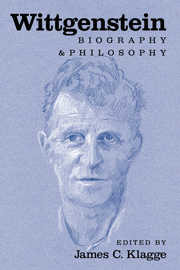Philosophy and Biography
Published online by Cambridge University Press: 27 March 2010
Summary
The biographies and autobiographies, … lives of great men, … that stand cheek by jowl with the novels and poems, are we to refuse to read them because they are not “art”? Or shall we read them, but read them in a different way, with a different aim? … How far, we must ask ourselves, is a book influenced by its writer's life – how far is it safe to let the man interpret the writer? How far shall we resist or give way to the sympathies and antipathies that the man himself rouses in us – so sensitive are words, so receptive of the character of the author? These are questions that press upon us when we read lives and letters, and we must answer them for ourselves.
– Virginia WoolfHow about the biographies and autobiographies – in short, the lives – of great philosophers (those many books that stand in our libraries and bookstores cheek by jowl with the volumes of their philosophy), are we to read them or not; and, if so, how? Let's call this “the first question.” It is a very general question.
And how about the possibility of a certain genre of biography (or autobiography) – which I will call philosophical biography – a mode of representation of the life of an individual philosopher that aspires to facilitate the understanding of that individual qua philosopher? A philosophical biography (or autobiography) aspires to confer through the genre of biography (or autobiography) – that is through the depiction of a life – a sort of understanding that itself has a claim to being termed philosophical.
- Type
- Chapter
- Information
- WittgensteinBiography and Philosophy, pp. 16 - 50Publisher: Cambridge University PressPrint publication year: 2001
- 8
- Cited by



